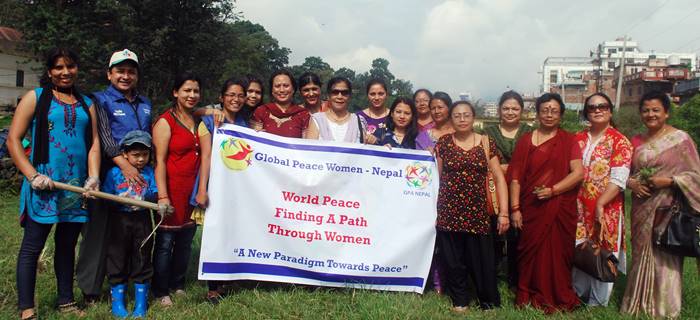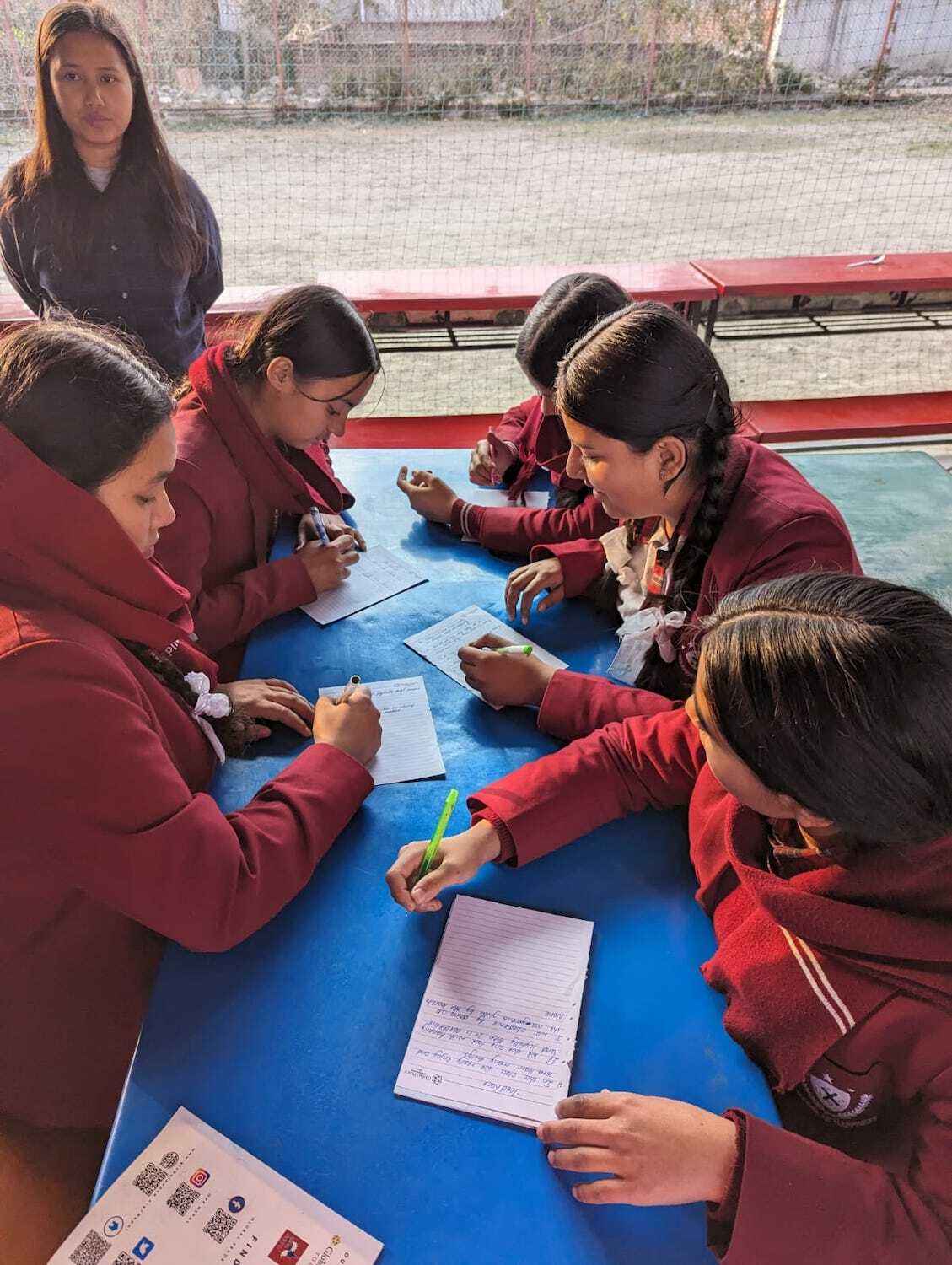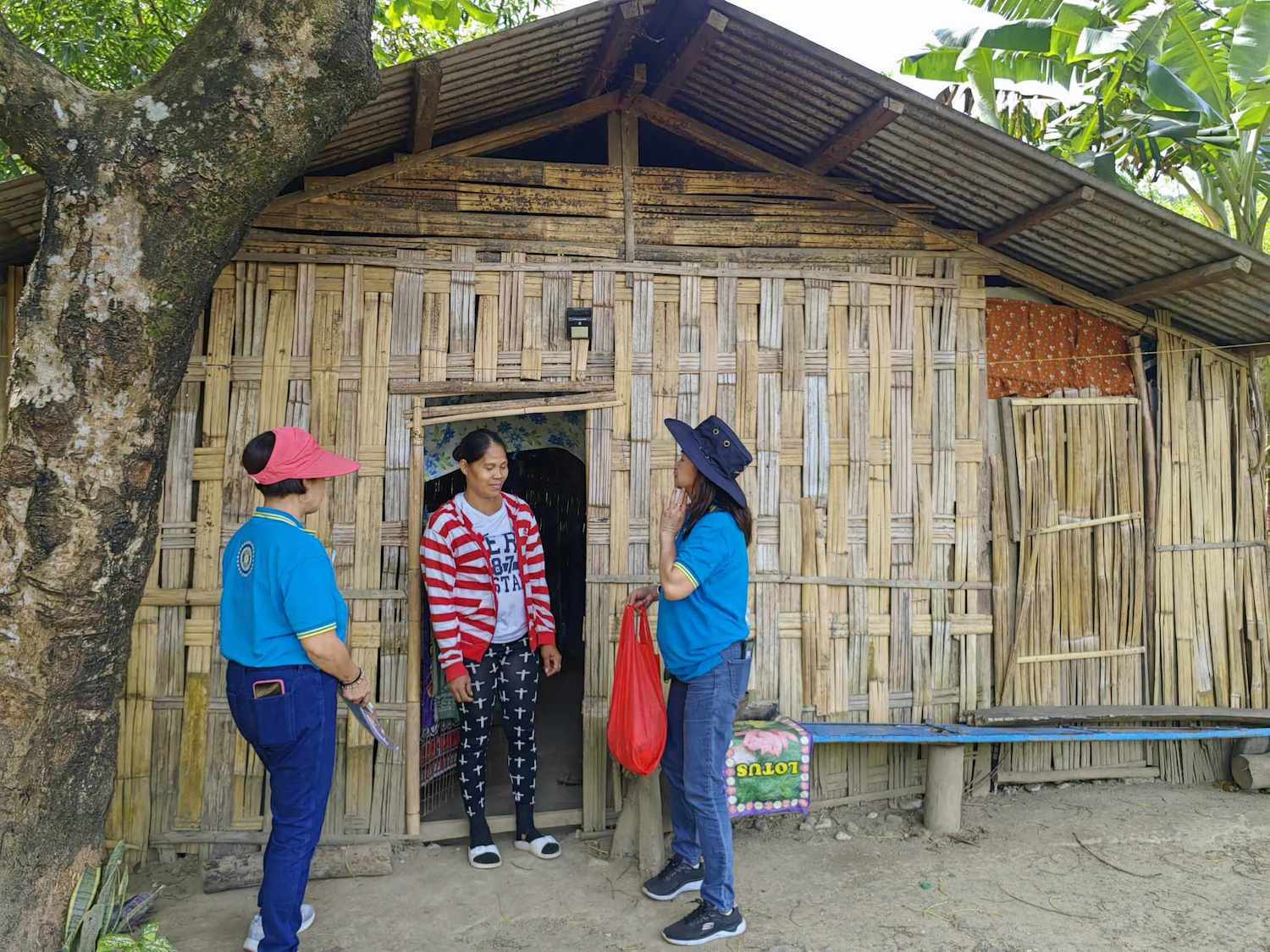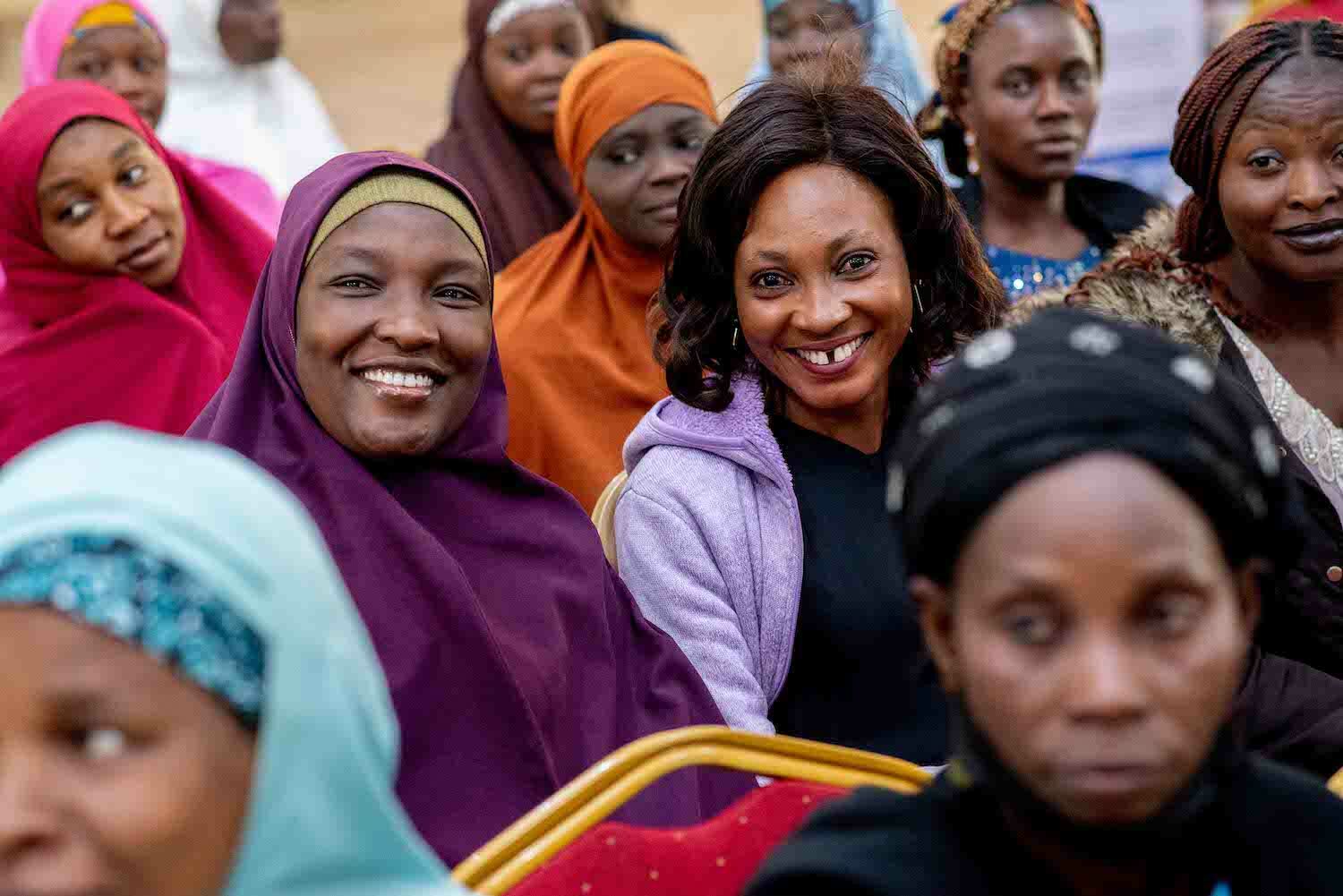Women traditionally pray and fast for 24 hours for the wellness of their husbands and their marriage during Teej, a women’s festival celebrated in Nepal, while single women pray and fast to receive a good husband. In the days prior to the fasting, women gather in their finest red saris and gold ornaments and celebrate with singing, dancing and sumptuous food. It is the time when they leave all their worries behind.
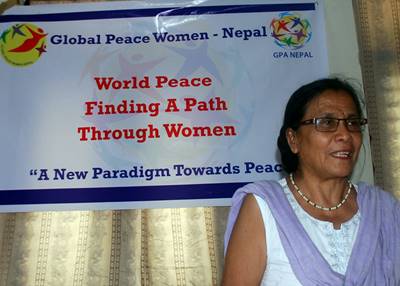
Professor Anada Shova Tamraka, an environment management expert and GPW Nepal Advisory Member, speaks to women about environmental management during the festival of Teej.
In recent years, however, many women neglect the essence of Teej and the festival has become a competition to compare dresses, appearance and ornaments. Global Peace Women (GPW) Nepal believes the essence of Teej can be preserved when connected to other challenges women face in their daily lives.
In Nepal, environmental degradation has great impact on women, as most women work in the agricultural sector and also manage their homes. In observance of the Teej Festival in 2013, GPW gathered women from different organizations to emphasize the intricate relationship of women and the environment and the vital role women can play in protecting and conserving the environment.
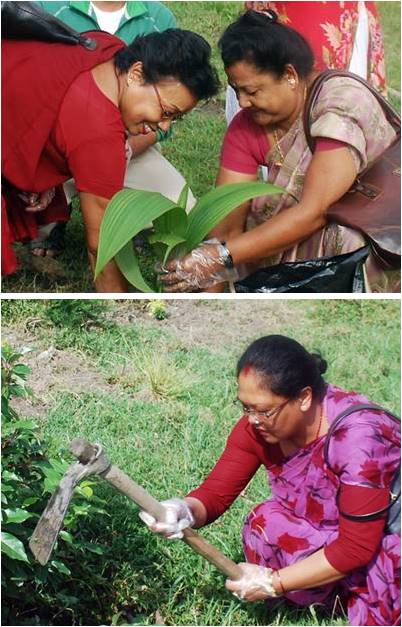
To advance this new dimension of the traditional festival, GPW hosted a service program on the banks of the Bagmati River on land allotted to GPA Nepal’s River of Peace Campaign, a project to rehabilitate the endangered river. The land was donated by the High Power Committee for Integrated Development of the Bagmati Civilization, a government agency under the Ministry of Urban Development. Participants in the program included executive members from GPW Nepal, Grihini Samuha, Environment Friendly Women’s Group, Women’s Dreams and Housewives Association Nepal.
The program encouraged women to do their part in preserving the river by properly disposing their refuse and further contributing to the beautification of the river and its banks.
“Women and the environment are closely linked with each,” noted Dr. Anada Shova Tamrakar, an environment management expert and GPW Nepal Advisory Member. “Women play an important role in conserving the environment and I am very happy to work with those who are determined to support this cause.” She also shared ideas on recycling and composting and said that conserving the environment should start in one’s own home.
“I’m glad to be part of this program,” said participant Mrs. Nisha Paudel. “Today I learned about the relationship of women and the environment. And from now on, I will practice what I have learned and teach others as well.”
